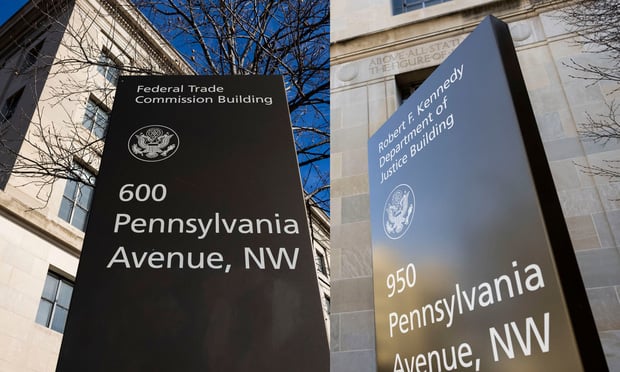 Adopting universalhealth coverage “would significantly increase government spendingand require substantial additional government resources,”the CBO says. (Photo: Shutterstock)
Adopting universalhealth coverage “would significantly increase government spendingand require substantial additional government resources,”the CBO says. (Photo: Shutterstock)
Creating a single-payer health-care system in the U.S. would bea “major undertaking that would involve substantial changes” tomedical coverage, according to a report issued by theCongressional Budget Office.
|The nonpartisan agency that evaluates the potential budgetary,economic and other effects of legislative proposals didn't assessany specific bill. Congressional Democrats have put forward anumber of measures that would expand or overhaul government healthprograms.
|“The transition toward a single-payer system could becomplicated, challenging and potentially disruptive,” the CBO saidon Wednesday. That disruption could be minimized by phasing inchanges gradually, according to the report.
|Adopting universal health coverage “would significantly increasegovernment spending and require substantial additional governmentresources,” the office said. Total medical spending in asingle-payer system “might be higher or lower than under thecurrent system,” depending on the particulars of how it's designed,the CBO said.
|The report is likely to give both opponents and supporters ofMedicare for All ammunition. But with a split Congress and aRepublican in the White House, much of the debate over the law isposturing ahead of the 2020 election, when political control willbe up for grabs.
|Even as a hypothetical, the possibility of major changes to theU.S. health-care system has been enough to rattle health stocks.Insurers, drug companies, hospitals and physicians would likely seethe fundamentals of their businesses rewritten.
|“Policy makers would need to consider how quickly people withprivate insurance would switch their coverage to the new publicplan,” the report said, as well as “what would happen to workers inthe health insurance industry if private insurance was bannedentirely or its role was limited.”
|Spending projections
Other estimates have projected that Medicare for All wouldincrease government spending while reducing private expenditures. A2019 estimate by the Rand Corp., a nonprofit research group,estimated that one version of Medicare for All would more thantriple federal spending to $3.499 trillion in 2019, though totalhealth-care expenditures would be almost unchanged.
|Mindful of how far-reaching the proposal would be and wary ofhanding the Trump administration a politically contentious issue tocampaign on, top Democrats have been cautious about giving Medicarefor All legislation significant stage time. But more progressivemembers of the caucus have pushed the issue, both on the campaigntrail, where many are running for the party's presidentialnomination, and in the House, where they helped take back themajority.
|Senator Bernie Sanders of Vermont, a leading contender for the2020 Democratic nomination, introduced a Medicare-for-All bill inthe Senate that has garnered support from four of his colleaguesalso seeking the Democratic nod: Kamala Harris, Cory Booker,Kirsten Gillibrand and Elizabeth Warren. In the House,Representative Pramila Jayapal, a Washington Democrat, has proposeda similar measure.
|The House Rules Committee held a hearing on Tuesday on Jayapal's bill.Kentucky Democrat John Yarmuth, chairman of the House BudgetCommittee, requested the CBO report. Yarmuth said the panel willhold a hearing this month on Medicare expansion proposals.
|Yarmuth said he hoped the report would accelerate a switch to asingle-payer system, an idea he described as inevitable. Despiteprogress increasing coverage in the last decade, “we must do more,which is why I believe it is no longer a matter of if we will havea single-payer health care system in our country, but when,” hesaid in an emailed statement.
|Representative Steve Womack of Arkansas, the top Republican onthe budget committee, said in a statement that the report“illuminates several consequences of Democrats' one-size-fits-allhealth care approach, such as higher premiums, out-of-pocketexpenses, and taxes.”
|Business impact
Health-care stocks have rebounded slightly after losing $150billion in market value in a week last month over worries about thepolicy.
|Humana Inc. Chief Executive Officer Bruce Broussard said on acall Wednesday that his company won't support any legislation thateliminates private insurance. The “holistic view” private insuranceoffers “is critical to the long-term success of the program and theability to offer greater benefits and more security forindividuals,” he said.
|Even Medicare for All supporters say a bill won't become lawanytime soon.
|“It's not going to happen” this year, Representative DebbieDingell, a Michigan Democrat, told a health-care conference inWashington on Tuesday.
|She said she's focused on stabilizing the Affordable Care Act,protecting patients with pre-existing conditions and lowering drugprices.
|“The Affordable Care Act didn't happen overnight,” Dingellsaid.
|Read more:
- Health stocks crumble as fears of Medicare for Allsnowball
- Medicare for All sound too extreme? Try plan B:Medicare for America
- Medicare, Medicaid better at holding down coststhan private insurance
Copyright 2019 Bloomberg. All rightsreserved. This material may not be published, broadcast, rewritten,or redistributed.
Complete your profile to continue reading and get FREE access to BenefitsPRO, part of your ALM digital membership.
Your access to unlimited BenefitsPRO content isn’t changing.
Once you are an ALM digital member, you’ll receive:
- Critical BenefitsPRO information including cutting edge post-reform success strategies, access to educational webcasts and videos, resources from industry leaders, and informative Newsletters.
- Exclusive discounts on ALM, BenefitsPRO magazine and BenefitsPRO.com events
- Access to other award-winning ALM websites including ThinkAdvisor.com and Law.com
Already have an account? Sign In
© 2024 ALM Global, LLC, All Rights Reserved. Request academic re-use from www.copyright.com. All other uses, submit a request to [email protected]. For more information visit Asset & Logo Licensing.








